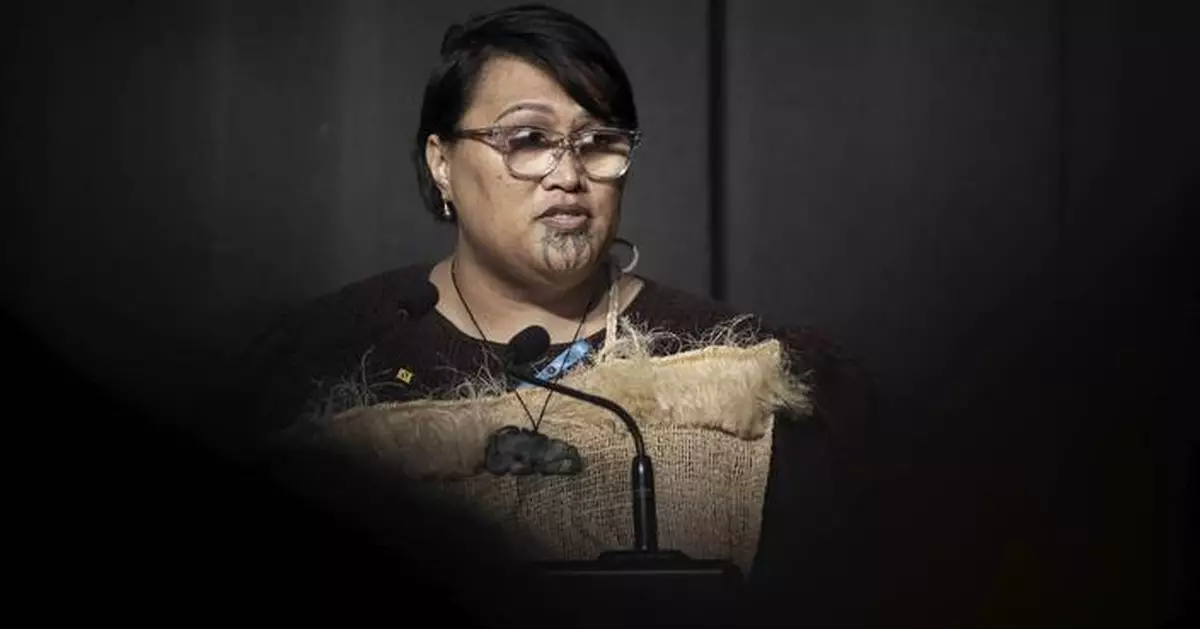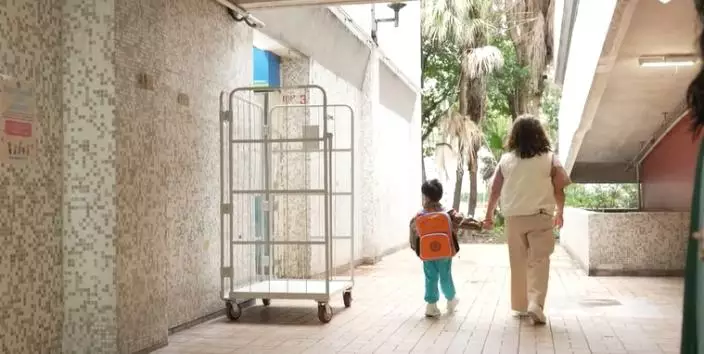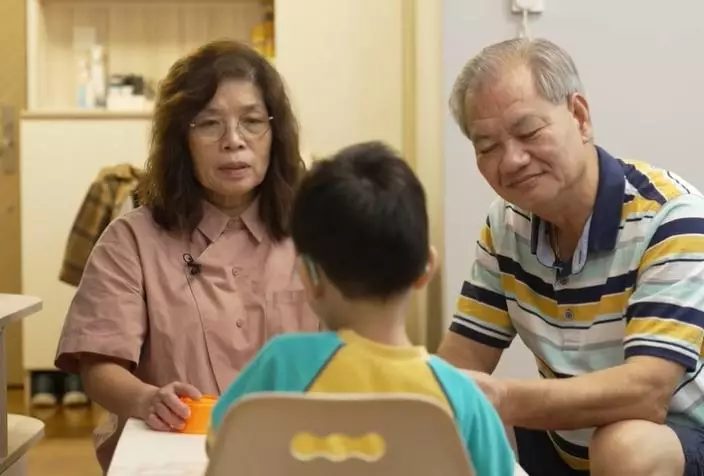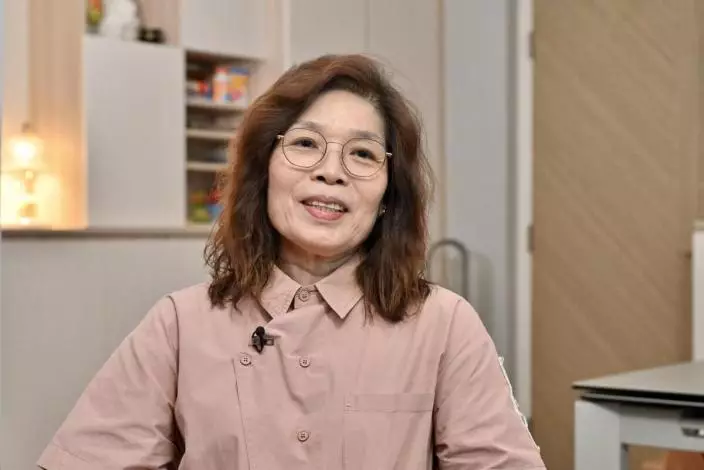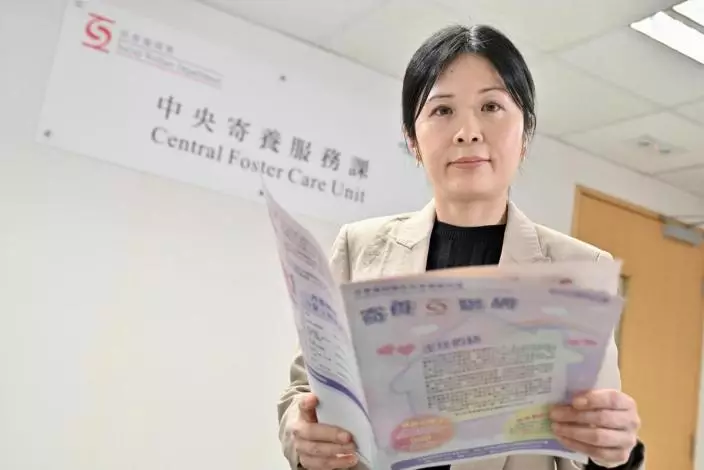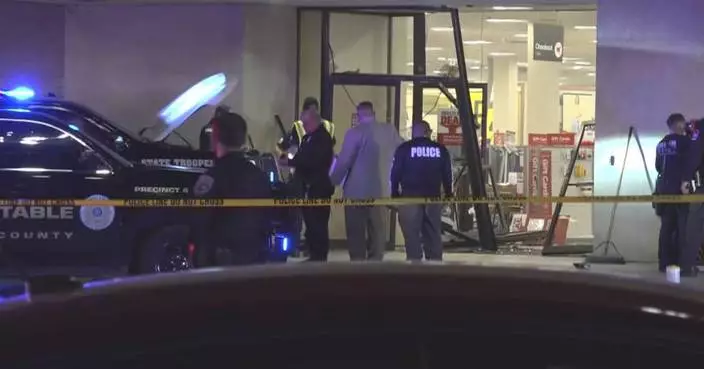WELLINGTON, New Zealand (AP) — Hundreds of survivors of abuse in state, foster and faith-based care arrived at New Zealand's Parliament in Wellington on Tuesday, each representing thousands more.
They came to hear the government formally apologize for the “unimaginable” horrors they suffered as children and vulnerable adults, after a long-running inquiry made its final report about the scale of the abuse in July.
“You deserved so much better and I am deeply sorry that New Zealand did not do better by you,” Prime Minister Christopher Luxon told them in Parliament hours later.
Many had T-shirts specially printed. Some used canes or wheelchairs because of the abuse they suffered in hospitals, institutions and care homes after they were taken from their families. A few were familiar faces from decades of advocacy and campaigning, mostly ignored until recent years. The public gallery in New Zealand’s Parliament is small — it seats fewer than 200 people — and a total of 500 had been drawn from a ballot to attend.
Many were disappointed that details of financial compensation for their suffering weren't divulged on Tuesday. Luxon promised that a redress system will be “operating next year.”
Survivors spoke in their own words about the day:
“Right now I feel alone and in utter despair at the way in which this government has undertaken the task of acknowledging all survivors. Once again, like our decades of fight, we are having to validate our care experiences and our existence.
“We continue living with the decimation of our identities, the raping and pillaging of our cultures through incompetent decision-making and the intentional moves to invalidate our experiences. The clear and utter destruction of lives cannot be downplayed, nor can it be swept under the carpet, as the state, churches and faith-based organizations have done for decades.
“I think it was a hollow and limited apology. It feels like they’re just giving consideration to things they can continue tinkering around with. Stop tinkering around and just get on with it.”
"In my files, they wrote ‘not intelligent enough’ at age 4. My mum was in a hospital institution at age 12, put there by her dad. So it’s been a generational thing.
"Surviving has been a roller coaster and we still don’t have a picture of the outcome. It’s sad that our system is very slow. That makes it really hard for a lot of us, having the anticipation of just a little bit of closure, a little bit of light. This is a long, drawn-out timeline to continue to be put through. It takes a toll.
“189 survivors were picked out of the ballot to sit in the public gallery today and I was one, so I was quite fortunate just in that. Coming here is a wider and significant way to apologize to our children, to our own families."
"Being acknowledged is the hardest part of being here. How do you accept that after being denied for 40 years of your life? It almost feels like you’re forced to accept the apology.
"What gets me is that we have people in high places who still look down on us, they don’t have any real understanding of why we are like this. There’s a reason why some of our youth are doing crimes. I see myself in that. We were just innocent kids that were taken advantage of.
“When I hear about these youth getting in trouble, all they’re looking for is some kind of attention, some kind of love. But nobody sees that and especially not these people. They think ‘the way to fix them up is to send them to boot camp.’ But that’s what they did to us. And that’s why we’re here today. It’s like it went in one ear and out the other side.”
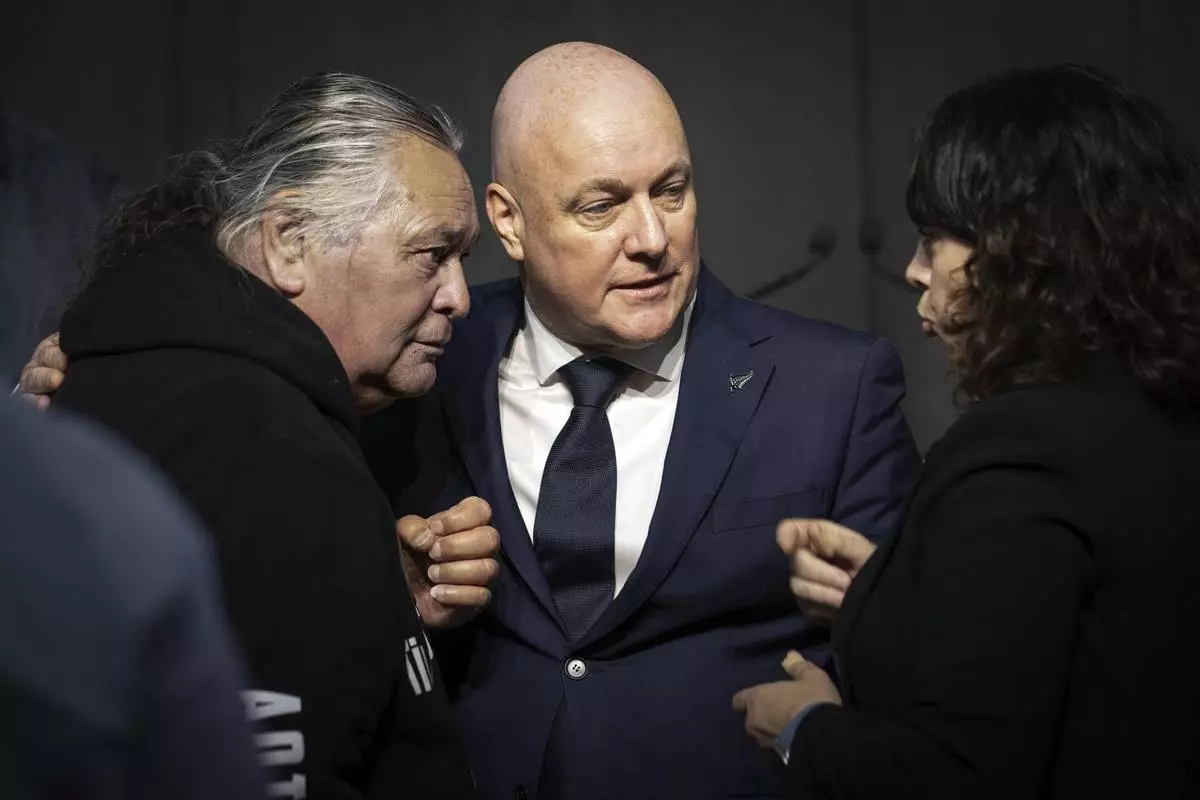
New Zealand's Prime Minister Christopher Luxon, center, talks with survivor Whiti Ronaki, left, and Laura Cherrington following his "formal and unreserved" apology in Parliament for the widespread abuse, torture and neglect of hundreds of thousands of children and vulnerable adults in care, in Wellington, New Zealand Tuesday, Nov. 12, 2024. (Monique Ford/Stuff via AP)
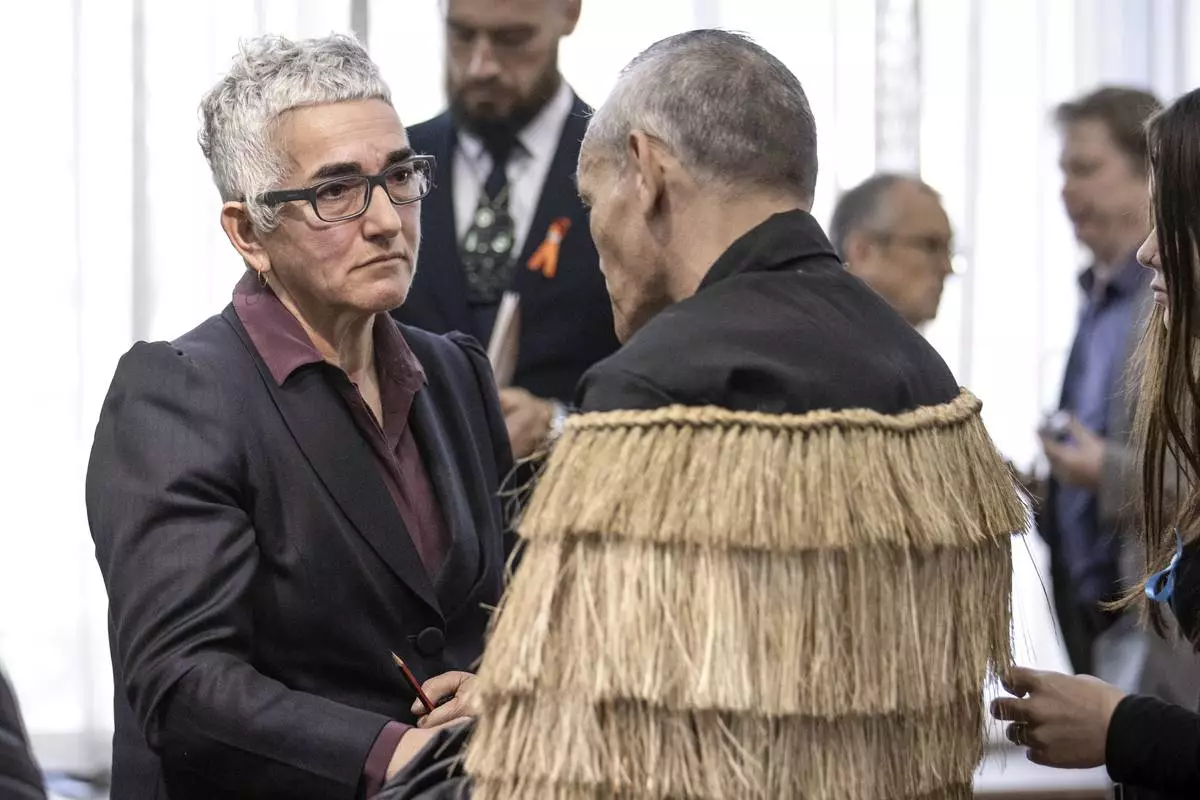
Solicitor-General Una Jagose, left, speaks with survivor Toni Jarvis following Prime Minister Christopher Luxon's "formal and unreserved" apology in Parliament for the widespread abuse, torture and neglect of hundreds of thousands of children and vulnerable adults in care, in Wellington, New Zealand Tuesday, Nov. 12, 2024. (Monique Ford/Stuff via AP)
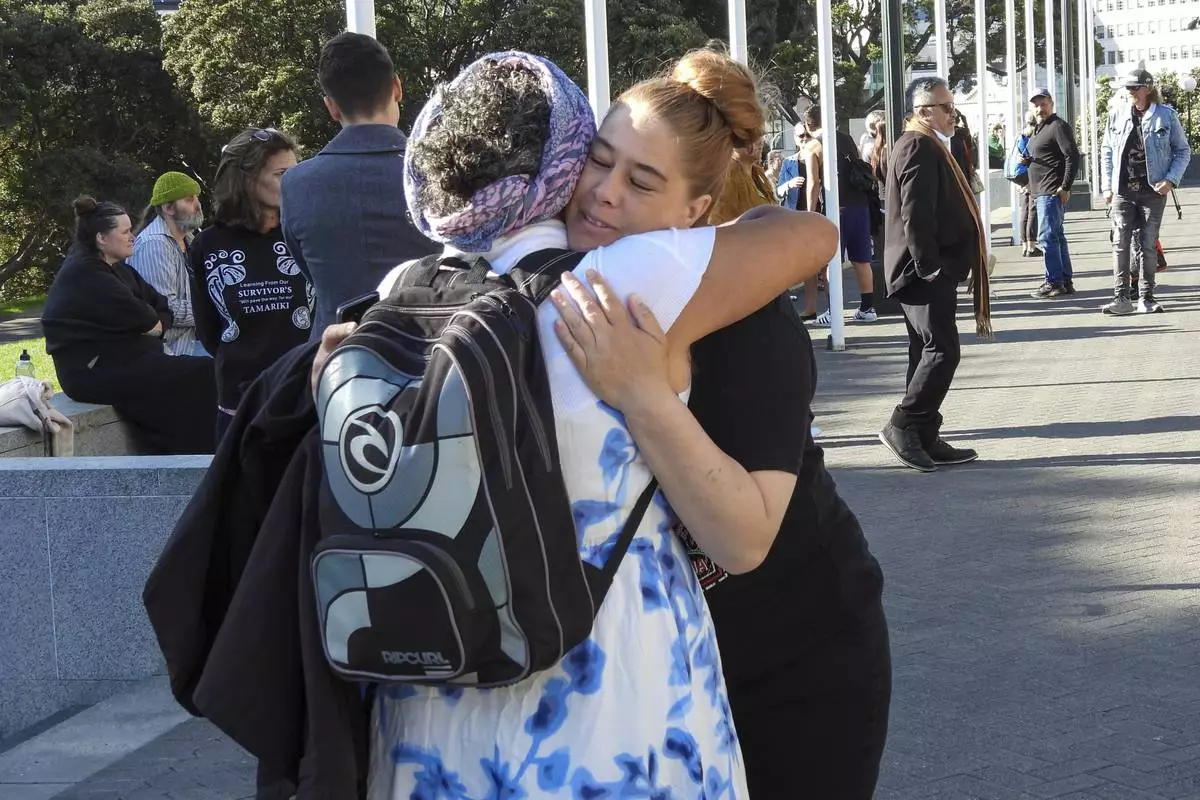
ADDS NAME - Jazmine Te Hiwi, right, embraces a friend as they arrive at Parliament House in Wellington, New Zealand ahead of the apology to the survivors of abuse in state, faith-based and foster care over a period of seven decades, Tuesday, Nov. 12, 2024. (AP Photo/Charlotte Graham-McLay )
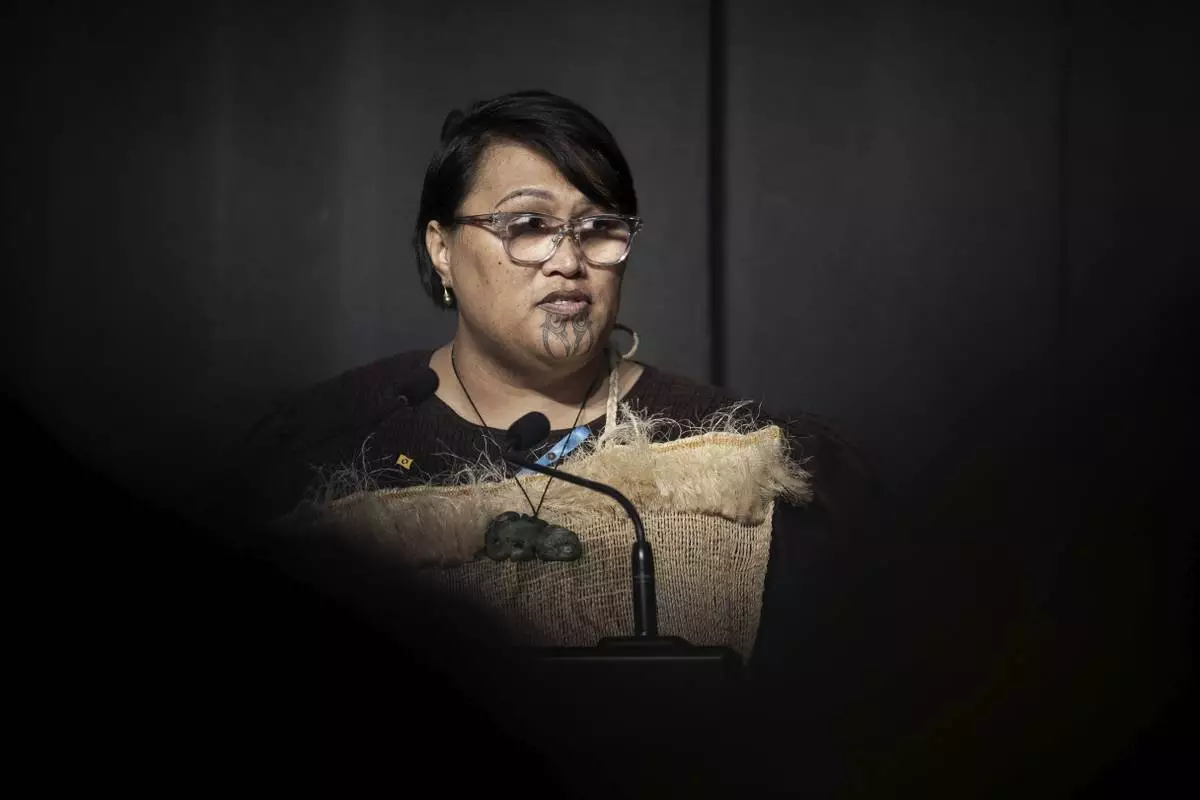
Abuse survivor, Tu Chapman, speaks following New Zealand's Prime Minister Christopher Luxon's "formal and unreserved" apology in Parliament for the widespread abuse, torture and neglect of hundreds of thousands of children and vulnerable adults in care, in Wellington, New Zealand Tuesday, Nov. 12, 2024. (Monique Ford/Stuff via AP)


